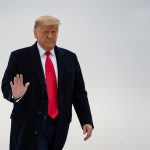In a chaotic political landscape, concerns regarding the safety of the president-elect have escalated, particularly in the wake of a serious assassination attempt on Donald Trump. The Secret Service, the agency tasked with ensuring the security of the nation’s leaders, has faced mounting criticism for its inability to prevent such incidents. This isn’t just a minor oversight; it reflects a significant shift in the organization’s effectiveness that worries those who remember a time when securing a principal protectee was seen as a non-negotiable priority.
Former Secret Service agent Richard Staropoli has come forward with grave warnings about the possibility of a new assassination attempt. He emphasizes a decline in the agency’s operational integrity, suggesting that the current Secret Service lacks the skills and vigilance that were once its hallmark. He notes that while modern advancements like drones may be impressive, they cannot replace the critical human element of intelligence and presence on the ground. The implication is stark: without a return to these fundamentals, the agency’s preparedness for serious threats could be dangerously inadequate.
Former Secret Service Agent Issues Dire Warning of Possible Attack https://t.co/3KJGzZZBE0
— 🇺🇸 The Briefing Room 🇺🇸 🇮🇱 (@Briefing__Room) December 10, 2024
Staropoli’s analysis raises chilling possibilities. The real danger, he suggests, may not come from isolated individuals seeking notoriety but rather from organized groups with ties to hostile nations. The thought of an attack by individuals armed not with rifles but with more sophisticated weaponry—like rocket-propelled grenades—serves as a sobering reminder of the type of dangers the president-elect might face. Such scenarios are alarming, and ignoring them could leave the nation vulnerable to threats that exceed the capability of the current protection strategies in place.
The urgency for the Secret Service to enhance its methods is underscored by the influx of potentially dangerous individuals crossing the nation’s porous borders. Millions of young, unattached men have entered the United States, and while they are often painted as benign migrants, the reality is that the risk they pose can’t be overlooked. If these individuals can smuggle drugs across the border, then theories of more calculated, militarized threats shouldn’t be dismissed as paranoia. Ensuring the safety of the president-elect amidst such unpredictability has never been more crucial.
Meanwhile, one thing is clear: Joe Biden is probably at less risk, ensconced in a bubble of political obsolescence and public indifference. However, Trump, as a lightning rod for controversy and affection alike, remains a prime target. His significance in the political arena makes him a high-profile individual whose security is paramount. As the inauguration approaches, the need for a strategic reassessment of the Secret Service’s capabilities grows more urgent. The stakes are incredibly high, and the time for underestimating the threats against the president-elect is long gone.




